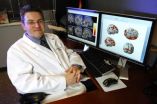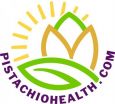The Global Health Technologies Coalition (GHTC), a group funded by the Bill & Melinda Gates Foundation and designed to give a greater voice for those advancing technologies for better health, recommended foremost in its annual report that in this difficult budget climate US policymakers should protect and sustain American investments in global health research and product development.
The report, which cited a long list of scientific achievements in the last year, said previous performance in global health has been remarkable and that more advances are now in the pipeline. Past funding has "yielded strong returns, resulting in new health tools with immense public health impact, in addition to fueling American job creation and domestic economic benefits," the report said.
"This past year we have seen breakthrough after breakthrough in global health—including vaccines, drugs, and tools that detect diseases," said Kaitlin Christenson, GHTC's director. "The impact of the investments in global health technologies is immense. These discoveries literally save thousands and thousands of lives every day in the developing world."
Christenson said US investment has been a principal factor in a host of critical advances in the last year, including: for the first time, a proof-of-concept showed that a gel called a microbicide can protect women against HIV and herpes; a new meningitis vaccine, costing less than 50 cents a dose, was launched in Africa and is expected to protect millions of people from death and disability; and the world's leading malaria vaccine candidate, RTS,S, is now in its last phase of clinical research in several countries in Africa.
"US support has been instrumental for all of these innovations," Christenson said. "What is encouraging is that US support has also helped accelerate other global health advances to come, in areas such as tuberculosis drugs, which would significantly shorten the amount of time a person would need to be on the medication. The advances are going to continue."
Dr. Alex Dehgan, science and technology advisor to the administrator of the US Agency for International Development, said that global health issues affected US citizens as well, and that technological innovation would help protect everyone.
"We are dealing with a set of interconnected problems around the world," he said. "What happens in Rwanda affects us in Topeka, and we need to pay attention to these things. That's why global health research and development is so important to us and is so connected to our own well-being. This report reminds us once again how US-funded global health research and development has made a critical and often life-saving difference in the lives of people around the world, and how it also offers multiple benefits to those of us in the United States."
Those benefits from global health research and development include major boosts to local and state economies throughout the country. One study in the state of California, for instance, found that global health supports about 350,000 jobs that generate $19.7 billion in annual salaries, wages, and benefits. In Washington state, global health supports 13,700 jobs that generate $1.7 billion in economic impact.
GHTC's report issues three sets of recommendations on funding policy, strengthening the Food and Drug Administration's role in global health, and innovative financing.
The 30 global health organizations' funding policy recommendations are: Sustaining and protecting US investments in global health research and product development. Developing concrete plans to incorporate research and development as a key priority within US global health and development programs. Ensuring that US investments in global health research are coordinated, efficient, and streamlined.
Its recommendations for FDA's increased role are: Releasing recommendations recently developed by its neglected diseases review group, and allow for public comment. Establishing stronger partnerships with other regulatory stakeholders, including the World Health Organization. Bolstering its internal expertise in neglected diseases, which could include inviting experts from developing countries to serve on its advisory boards. Increasing its engagement with groups developing global health tools. And Congress should include appropriations language to support the FDA's role in global health and fund the agency accordingly in next year's budget legislation.
Its recommendations for incentives and innovative financing for global health are: Establishing a cross-agency working group to explore US investment in incentives and innovative financing mechanisms for global health. Engaging with civil society, nongovernmental organizations, and private industry on this issue. Engaging with other governments and donors to explore and support incentives and innovative financing. Supporting a portfolio of incentives and financing mechanisms to stimulate needed research and development at all stages of the product development process. And conducting continuous rigorous assessments of each incentive and financing mechanism that the United States supports.
The 30 global health organizations that support the recommendations are:
Aeras Global TB Vaccine Foundation
AIDS Vaccine Advocacy Coalition
American Society of Tropical Medicine and Hygiene
BIO Ventures for Global Health
CD4 Initiative
CONRAD
Drugs for Neglected Diseases initiative
Elizabeth Glaser Pediatric AIDS Foundation
Family Health International
Foundation for Innovative New Diagnostics
GAVI Alliance
Global Alliance for TB Drug Development
Global Campaign for Microbicides
Global Health Council
Infectious Disease Research Institute
Innovative Vector Control Consortium
Institute for OneWorld Health
International AIDS Vaccine Initiative
International Partnership for Microbicides
International Vaccine Access Center
International Vaccine Institute
Medicines for Malaria Venture
PATH
PATH Malaria Vaccine Initiative
Population Council
Public Health Institute
Research!America
Sabin Vaccine Institute Global Network for Neglected Tropical Disease
Seattle BioMed
Treatment Action Group
###
About the Global Health Technologies Coalition:
The Global Health Technologies Coalition (GHTC) is a group of almost 40 nonprofit organizations working to increase awareness of the urgent need for tools that save lives in the developing world. These tools include new vaccines, drugs, microbicides, diagnostics, and other devices. The coalition advocates for increased and effective use of public resources, incentives to encourage private investment, and streamlined regulatory systems. For more information, visit www.ghtcoalition.org
END


